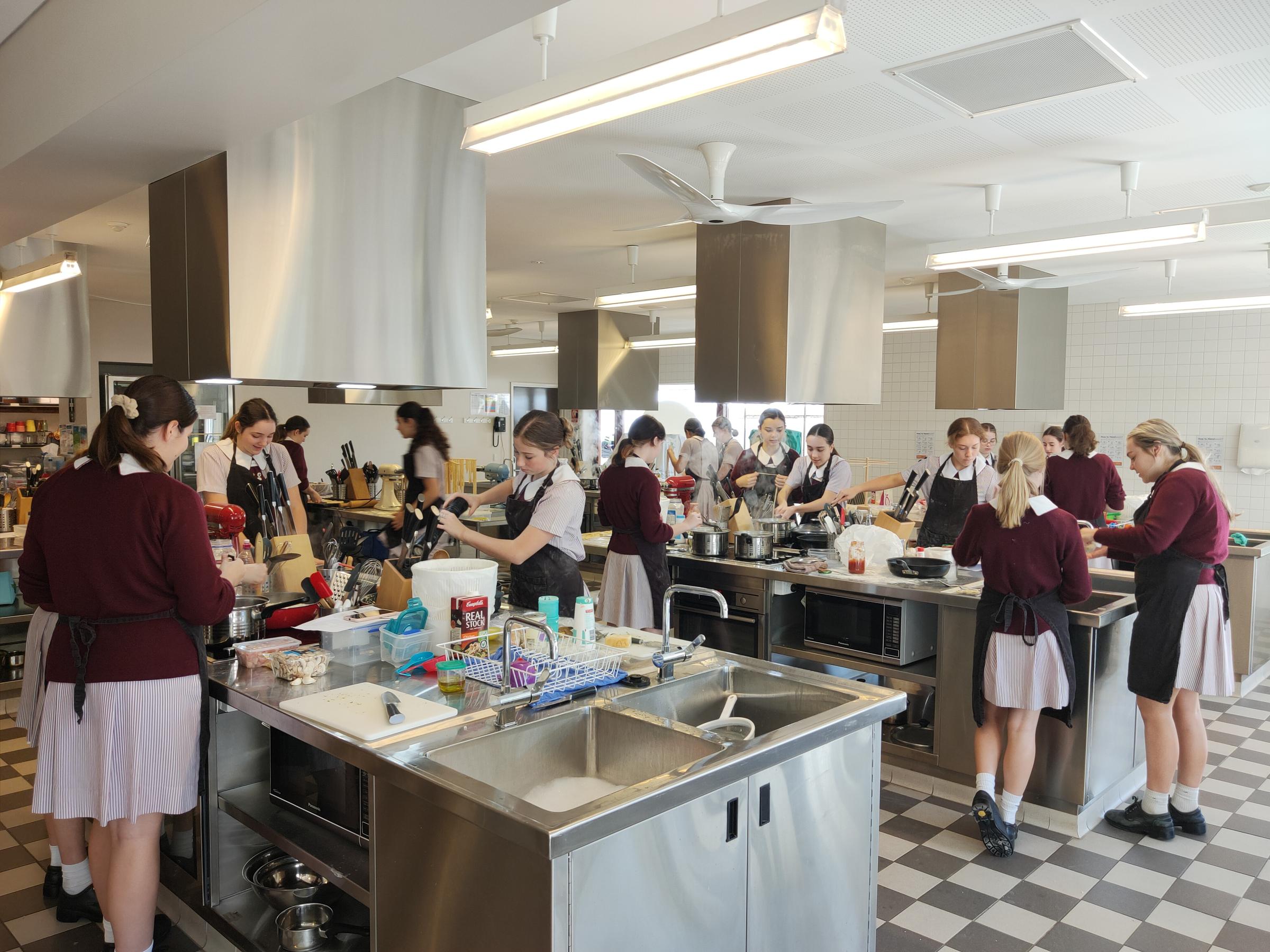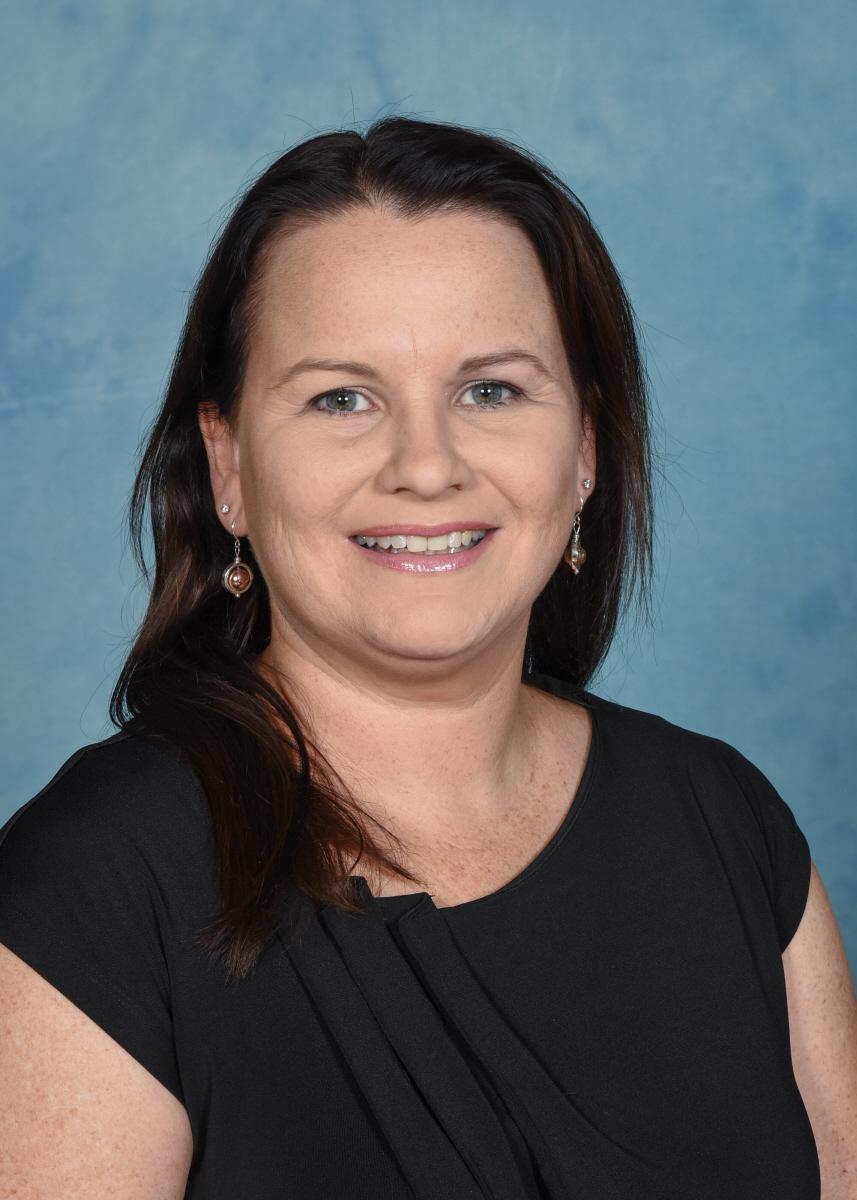Learning Area Advisor - Health

Quite often we view classes for what we see from the outside, our own past experiences, or what is physically produced or displayed, but quite often there is so much more than meets the eye.
If you were to ask teachers what skills they see displayed in their PE or Food Technology classes, for example, they would mention skills such as collaboration and teamwork, problem solving, and personal and social capability, to name a few. Students use literacy skills to read their recipes and maths skills to measure; they learn intercultural understanding in the games that they play and the foods that they produce. 21st century skills are embedded in the Australian Curriculum to prepare students for their futures and often in careers unknown to us today.
21st century skills include:
- Literacy
- Numeracy
- Information and communication technology (ICT) capability
- Critical and creative thinking
- Personal and social capability
- Ethical understanding
- Intercultural understanding
The list below from the Assessment & Teaching of 21st Century Skills website shows another approach to categorising these skills:
Ways of thinking
- Creativity and innovation
- Critical thinking, problem-solving, decision-making
- Learning to learn, metacognition
Ways of working
- Communication
- Collaboration
Tools for working
- Information literacy
- ICT literacy
Living in the world
- Citizenship — local and global
- Life and career
- Personal and social responsibility — including cultural awareness and competence
(www.australiancurriculum.edu.au)
An article written last year by ACARA CEO David de Carvalho explains the concept well, where he explores the valuable lessons displayed in the TV program Masterchef and which is not too unlike what our Hospitality students and many others experience in their classrooms.
On a knead to know basis
Opinion piece by ACARA CEO, David de Carvalho, published in The Daily Telegraph, Sydney, on 21 July 2020
"MasterChef is more than just a reality show – it also has some valuable lessons for students and teachers.
What does MasterChef 2020 have to do with school? More than you'd think.
The show's Grand Finale took place last night, with Emilia and Laura vying for this year's trophy. As I was watching the season, I've noticed some things about the show that are relevant to education – and which parents should keep in mind as they follow their children's educational progress.
So what lessons are there in a reality cooking competition that follow through to the classroom?
The first three relate to the importance of having a knowledge-rich curriculum if we want students to think creatively and critically. The second three relate to the role schooling plays in personal and moral development.
Creativity requires knowledge
When contestants are shown the ingredients they have to work with, they have little time to make up their mind what they are going to cook. Within a short period, they must come up with a range of possible ideas that could work, and then select one.
The range of possible ideas depends on what you know about the ingredients: how they taste, the different ways they can be cooked and how long that takes, what flavours go with what. If you don't have that background knowledge in your long-term memory, you're cooked. Creative thinking is not just a case of 'making stuff up' – it requires you to know things.
Critical thinking also requires knowledge
The judges must make fine distinctions of quality between dishes that, to untrained taste buds, are pretty much the same. They must fairly compare dishes that have different ingredients and cooking methods. This takes expertise, wide and deep knowledge, and experience.
But, while Melissa, Jock, and Andy might be good at judging food, you wouldn't expect them to be good judges of a diving competition or ask them to decide who should get the Miles Franklin Award. Critical thinking is mostly subject-specific. But all good critical thinkers have some things in common, such as paying attention to the relevant details and knowing the right questions to ask.
Order and proportion are the essence of beauty
"The flavours are beautifully balanced", the judges often said in praise of a dish. The beauty was in the balance of flavours, the way they worked together as a unity, not just a collection. This meant that the ingredients had to be in right proportion so that a sauce didn't "overpower", or the texture of the puree was "not too grainy".
In other words, there is virtue in things being done the right way in the correct sequence, and even the most creative dishes have to observe these principles of good order and proportion. Dishes were described as "a work of art", meaning not only was it visually appealing but that it expressed culinary order and beauty. Again, one can't apply these principles unless you have both theoretical and practical knowledge of them.
You can still win when you lose
Many in education worry about the psychological impact on students who don't meet expected standards, about them being 'branded a failure'. Whether a person is a failure depends on how they respond to failure. For me, whether Reynold won or not, the fact that he chose to cook - in a high-risk elimination episode – the same type of fish that he cooked disastrously in an earlier season, leading to his elimination, spoke of his resilience and willingness to learn from his mistakes rather than let them defeat him.
A key question for parents and teachers is how we build resilience in our children and young people so they can experience disappointment and failure without being crushed by it, and adapt to the randomness and unfairness of life and get up when they are knocked down.
Competition encourages excellence
"These guys are all excellent cooks, so I have to bring my best game to the kitchen today." A cliché perhaps, but clichés become clichés because they have an element of truth to them. When we really want to win a prize that others are also striving to win, it pushes us to work harder and smarter. It encourages us to learn more, to develop and refine our skills, to do the best we can.
"You have to ask yourself: is this dish worthy of a final?" All of the dishes prepared by the cooks who made it into the final weeks of competition were good. Many were great. But fewer still were 'finals-worthy'. People rise to a challenge that is within their ability to meet.
Culture is important
Finally, what distinguishes MasterChef from other cooking shows is the supportive culture created between the contestants. While they are competitors, they are also colleagues. They want to do their best, but they also want the others to do their best. This is not about 'beating' others or tearing them down. It's about building everyone up and developing everyone, not just in terms of their cooking knowledge and skills, but so they also grow as people. That kind of culture is something every school aims to achieve."
----
As you will see, there are so many skills and life lessons learnt both in and out of the classroom, many of which are not always easily recognised at the time. For me personally, I love nothing more than the positive culture displayed by students after completing an item they have created and hearing the positive feedback provided by their peers. We are confident at Mount Alvernia that, through the curriculum delivered, students are receiving the preparation they require to be confident, capable, and knowledgeable citizens.
Michelle Popplewell

